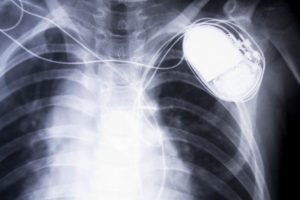
There are many reasons why a person’s heartbeat may run fast, or slow. For example, adults who regularly exercise will have a slower resting heartbeat. Additionally, seniors are typically prone to a slower heartbeat as aging causes the heart muscles to weaken. Although these reasons are harmless, bradycardia could also signify a more serious condition. If the heart cannot pump a sufficient amount of blood, symptoms and complications may arise.
Causes, symptoms and risk factors of bradycardia

Other causes of bradycardia include:
- Heart tissue damage associated with aging
- Damage to the heart and heart tissues caused by heart attack or heart disease
- Hypertension
- Congenital heart defect
- Myocarditis
- Complication of heart surgery
- Hypothyroidism
- Obstructive sleep apnea
- Rheumatic fever
- Inflammatory disease
- Hemochromatosis (buildup of iron)
- Medications.
Symptoms to pay attention to in regards to bradycardia are:
- Near-fainting or fainting
- Dizziness
- Weakness
- Fatigue
- Shortness of breath
- Chest pains
- Impaired cognitive ability.
There are a few factors that can increase a person’s risk to develop bradycardia. They include age, smoking, alcohol use, high blood pressure, and psychological stress or anxiety.
Treatment and prevention of bradycardia
A pacemaker may also be an option. A pacemaker is a device that replicates what your heart naturally does on its own. It creates the electrical signals needed to create a heartbeat.
Prevention of bradycardia consists of healthy lifestyle choices which include:
- Exercise and eat well
- Don’t smoke
- Limit alcohol
- Don’t abuse drugs
- Maintain a healthy weight
- Control underlying medical conditions
- Control stress
- Visit your doctor for regular check-ups.
If you already have a heart condition and your doctor has you on a plan, ensure you are taking medications properly as well as following any other suggestions the doctor may have laid out for you.
Related Reading:
Treat depression after heart attack
A heart attack occurs when there is not an adequate blood supply to the heart. This can be caused due to a blockage. Damage can occur in the heart, and depending on how long the heart goes without blood will determine the severity of the damage. Continue reading…
Strong heart linked with strong mind
When we think about love, two key players seem to be involved: The heart and the mind. Your heart may tell you one thing, but the logical mind may sway you another way. The heart-mind battle then rages on when deciding between passion and logic. Continue reading…
Sources:
http://www.mayoclinic.org/diseases-conditions/bradycardia/basics/prevention/con-20028373
http://www.heart.org/HEARTORG/Conditions/Arrhythmia/AboutArrhythmia/Bradycardia-Slow-Heart-Rate_UCM_302016_Article.jsp